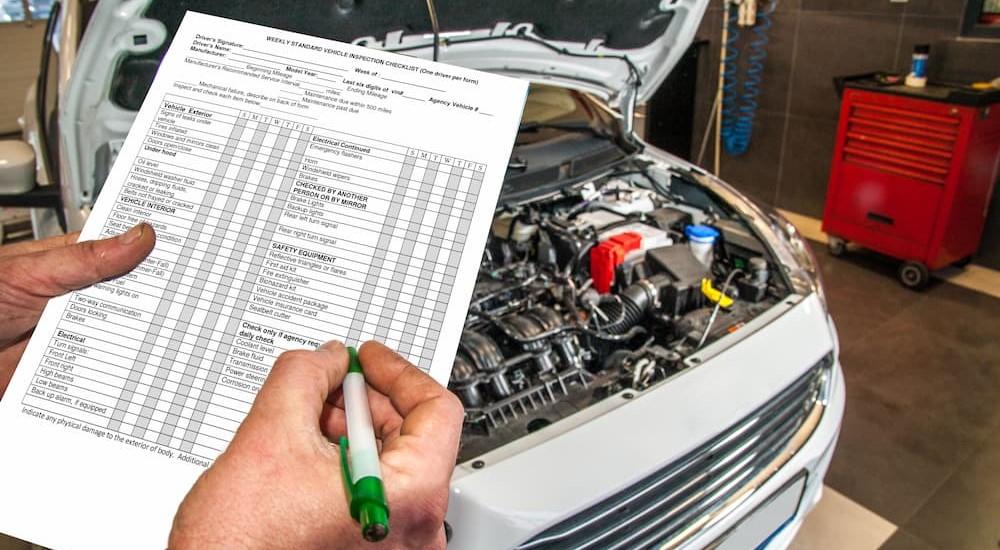Are you browsing a used car dealership looking for your next vehicle? Or maybe you’re just starting your search for a pre-owned model online? Whatever step of the car-buying journey you’re on, there’s one thing you have to be aware of when shopping for pre-owned models and that is a lemon. No, we’re not talking about the tart citrus fruit today. When talking about a “lemon” car I’m referring to a vehicle that might look good from the outside but you’ll soon find it has mechanical issues or a serious defect that makes it expensive to fix and perhaps even unsafe to drive. The fear of getting a lemon is one of the reasons why many drivers stress when shopping for a pre-owned model.
If you’re shopping at a dealer you haven’t worked with before or you’re not a car expert, then it’s easy for small issues like worn faulty brakes, dysfunctional transmission, and other problems to go under your radar. You are reliant on the dealer and hope they are being honest. While there are lots of great dealers out there, there are still enough lemon car stories to give people pause about buying a pre-owned vehicle.
While there are federal and state laws to help protect drivers against buying a lemon, they mostly deal with warranties, and can quickly become complicated and stressful. They mostly state that if repairs are done to the car during the warranty period that doesn’t fix the issue, then the dealer is required to compensate you so that the problem can be fixed. Yet, wording can be tricky, and many drivers might not even be aware that such lemon laws exist since they can vary from state to state. It can also be difficult to get a dealer to admit there was a problem with the vehicle when they sold it, which leaves you with a high bill and lots of frustration.
So how can you protect yourself when buying a pre-owned model? There are several steps you can take to ensure you get a model you love without the stress of worrying whether or not your new vehicle will turn into a troublesome lemon that could cost you extensive time and money trying to repair it. Let’s take a look at some of them now…
Start With Basic Research
One of the best ways to avoid accidentally buying a lemon is through research. Knowledge, as is so often the case in life, is power. Whenever you are thinking about purchasing a pre-owned model, learning more about its strong and weak points, its good and bad years, is very helpful. This can help you avoid model years that are known for having engine problems or lots of recalls that could result in issues down the road. Once you decide on a certain make or model, narrowing down your search by a model year or two known to have high customer satisfaction ratings and few recalls or reported issues is a great step.
If you know the particular dealer you want to visit, it can’t hurt to look them up as well. Everyone has an online rating these days. If they tend to have high numbers of happy customers, then chances are you don’t have to worry as much. But if a certain dealer continuously has poor ratings and numerous complaints, then you might want to consider shopping elsewhere for a dealership you can trust.

See the Vehicle for Yourself
Once you narrow down the make and model of the vehicle you’re interested in, and once you’ve decided on the dealer you want to buy from, getting a vehicle history report helps show you what kind of condition the car is in. It will detail the car’s history and can show if it’s been involved in any serious accidents, floods, fires, etc. It can give you extra peace of mind to know that a car has seen only light use and no serious accidents or major repairs. But if you look at the history report or service records and notice the same issues have occurred and been repaired multiple times, this should be a red flag.
Checking on the vehicle in person is also a great way to assess the vehicle. Even if you are not a car expert you can still look for exterior damage like dents, scrapes, rust, or signs of repair. Ensuring that all the doors work and lock, all windows seal, lights work, and the trunk opens, closes, and locks are all small things that will let you know if the car is in good shape.
When you turn on the vehicle check to ensure no maintenance or warning lights come on. If they illuminate, then make sure you talk to the dealer and ensure they are addressed before purchasing it. Make sure seat belts lock and are in good shape. Look around for signs of water damage or smells of mold or mildew, interior repairs, or stains. Under the hood, you should check for signs of rust or any leaks. Make sure fluids are all looking good and as they should. Check under the car for signs of any leakage. If you have any questions about the condition of the car you shouldn’t be afraid to ask the dealer, that is why they’re there–if they try to dodge the question, consider shopping elsewhere.
Ask About Warranty Programs
Another great way to avoid a lemon is to seek out a notable dealer that offers a warranty program with their used cars. When searching for a dealer you’ll find that some sell used cars “as-is” which means if there is a hidden problem, that’ll be your problem. Going with a dealer that offers a warranty with pre-owned models can give you peace of mind when purchasing a used car.
When you find a dealership you like, make sure you look at the fine print as warranty coverage can vary from dealer to dealer. Many warranties cover at least 30 days or up to 1,000 miles. But you have to read the sales contract carefully to be sure you know what is and isn’t included when it comes to repairs so you’re not caught off guard if an issue crops up. Dealers typically offer their own incentives or specials, plus they’ll have guidelines for things like returns and exchanges. Understand all of this before you sign anything.

Get a Car You Love, Not a Lemon
While you can certainly buy a pre-owned model and drive away with a great vehicle, there is always the possibility of getting a lemon. This is one reason why many drivers hesitate to buy a pre-owned vehicle. Yet savvy buyers are all too aware of the multiple benefits of buying a used car as well. Buying used means upgrading your ride without breaking your budget. When you go with a pre-owned model you get access to high-end features or special editions that might have been outside of your budget if you purchased it new. Buying used gives you a huge selection of vehicles that are loaded with great features that might not be available on new models anymore. If you want to get a fully loaded new car at a great price, going used makes sense.
But then there’s the risk of getting a lemon, which no one wants to think about. It’s possible to help safeguard yourself from this by following a few simple steps. First, start with research. Look into the make and model you’re after. Find out the car’s best and worst years and any mechanical issues you need to watch out for.
While you’re researching, check up on the dealer you’re going to be visiting. You want one with positive reviews and high driver satisfaction ratings. Finding out whether or not that dealer provides a warranty on their used vehicles and what that warranty covers is also important. If the dealer is selling a used car “as-is” if something goes wrong, the repairs are completely on you. Viewing the model in person, going over the history report, and talking to the sales team will let you know if you’re on the right track. And most importantly: take your time. Don’t let a dealer rush you through the paperwork or brush aside your questions. Buying a vehicle is a large investment so make sure you are making the choice that works for you, not someone else.



